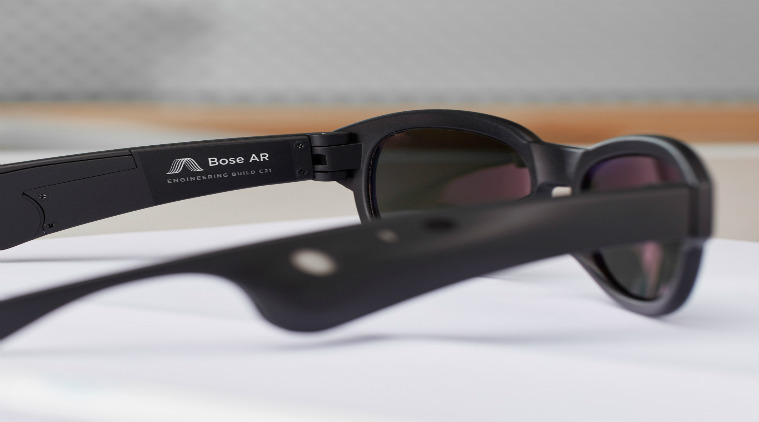Bose’s AR glasses to focus on audio, rather than visuals
Bose developed a prototype for a pair of AR-based smart glasses that will be showcased at the Southwest Interactive Festival in Austin. Unlike traditional AR smart glasses from other manufacturers, these glasses blend audio instead of visuals.
 Bose has announced a pair of augmented reality-based smart glasses but the company is taking a different direction. (Image credit: Bose)
Bose has announced a pair of augmented reality-based smart glasses but the company is taking a different direction. (Image credit: Bose)
Bose, known for its high-end audio products, is working on smart glasses. At the ongoing Southwest Interactive Festival in Austin, Bose has announced a pair of augmented reality-based smart glasses but the company is taking a different direction. Unlike traditional AR smart glasses from other manufacturers, these glasses blend audio instead of visuals.
Bose will be launching an AR platform and set up a $50 million venture to invest in start-ups and developers. The company said it is collaborating with academic research institutes, including the Massachusetts Institute of Technology Media Lab and the New York University Future Reality Lab, developers and manufacturers such as ASICS Studio, Starva, TripAdvisor, and Yelp, among other partners.
“Bose AR represents a new kind of augmented reality— one that’s made for anyone and every day,” Bose Consumer Electronics Division Vice President John Gordon said in a statement. “It places audio in your surroundings, not digital images, so you can focus on the amazing world around you— rather than a tiny display. It knows which way you’re facing, and can instantly connect that place and time with endless possibilities for travel, learning, music and more. And it can be added to products and apps we already use and love, removing some of the big obstacles that have kept AR on the sidelines.”
The company’s first AR prototype is described as “glasses to hear”. Instead of superimposing visual objects on to the real world like other AR smart glasses, they add an “audible layer of information and experiences”. There are no headphones or speakers built-into these glasses, but the company says it uses a minuscule acoustics package developed for the AR platform. It can be built into built into headphones, eyewear, and helmets.
The prototype glasses has Bluetooth built-in, and they are compatible with Siri or Google Assistant or even use them to make hands-free calls. These glasses also use sensors to track head motion for gesture controls, and they work with GPS from a paired phone to track your location.
Bose says these AR glasses will be available in summers for developers and manufacturers, in limited supply. But Bose isn’t alone working on AR smart glasses. The list includes the likes of Intel, Magic Leap, Apple, Samsung, and Amazon, among others. Google was the first company to release a pair of smart glasses in the form of Google Glass in 2011, although the experiment failed to take off.







